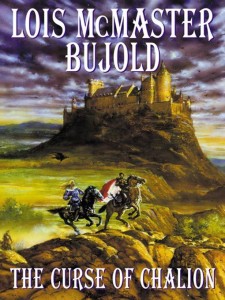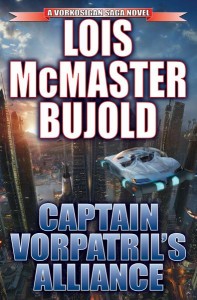Great fantasy gets its power from one of two sources: myth, history, or both. By this, I mean drawing on themes such as the rise and fall of empires, the struggles of individuals against fate and the gods, and the way in which cultures are shaped and formed by the interactions of different peoples — not copying the originals 1:1. The author’s imagination is either a third ingredient in its own right, or the next step in the process that transforms mythical and historical inspirations into a finished product.
My favourite works of fantasy, across different media, exemplify this. To pick a few examples:
- Lord of the Rings combines myth, history, and in some ways, a very modern take on its subject. Its themes include temptation, sacrifice, the triumph of the meek — it’s notable that the heroes are the hobbits, Frodo and Sam, not Aragorn or Gandalf — and the fading of an enchanted world. The world itself changes, as peoples migrate and kingdoms rise and fall. At the same time, it’s also about the pity of war, the inevitability of change, and in Frodo’s case, the difficulty of returning home afterwards.
- His Dark Materials is about a revolt against the heavens, while also drawing on the author’s imagination to create a wondrous world where a person’s soul takes animal form; talking, armoured bears rule the north; and balloonists ply the skies.
- Princess Mononoke is about a conflict between peoples with very different worldviews and agendas, each protecting their own home. It’s also a story about human ingenuity pitted against the awesome powers of nature and the gods.
- Moribito: Guardian of the Spirit is a stand-out for how well it blends myth and history. Its premise is out of myth: protecting a boy who houses a spirit that can save the land from drought. Its details are grounded in history: the land has a dynamic past and is populated by multiple ethnic groups, with distinct material cultures, belief systems (from village shamans to court astrologers), and traditions. The characters live in a waterwheel-powered mill and pay at the market with strings of cash. Everything feels well-thought out.
The converse of my theory is that I can’t stand generic fantasy settings that take themselves seriously. By ignoring the original foundations of myth and history, and aping bestselling modern works instead, they become devoid of awe, wonder, and originality.
A final, rather meta implication is that, just as fantasy settings often posit a world that declined from a golden age, so I tend to prefer older works and, in some cases, authors who wrote before the modern emergence of fantasy as a commercial genre:
- Out of my favourite fantasy authors, the most modern is Daniel Abraham, whose Long Price Quartet dates to the 2000s.
- Going back a generation or two are Terry Pratchett (my favourite Discworld novels were published between the 1980s and early 2000s), Lois McMaster Bujold (active from the 1980s; The Curse of Chalion, my pick for her best fantasy, was published in 2001), and CJ Cherryh (who published the books I have in mind in the 1970s-1980s).
- Before that are Roger Zelazny (1960s onward, with the Chronicles of Amber, my favourite, published in the 1970s), of course Tolkien (1930s-1950s), and perhaps Dunsany (1900s) or Kipling (the 1890s, if you consider the Jungle Book fantasy).
Now, I am not saying that fantasy creators cannot be inspired by, or conduct a dialogue with, others. Discworld started as a parody, His Dark Materials was written as a rancorous response to Narnia, Cherryh’s Morgaine books bear the influence of earlier authors such as Moorcock, and Daniel Abraham’s Dagger and Coin series (written after the Long Price Quartet) both plays with and subverts the genre. The point is that these works had something interesting to say.
And that’s the value that myth and history bring to fantasy fiction — they make it interesting. They offer primal, powerful themes; conflict to drive the characters; and verisimilitude — the sense of an immersive and convincing world. I don’t think the genre would exist without these wellsprings, and to this day, they enrich works of fantasy.
Enjoy the site? Subscribe below to receive email notifications:


